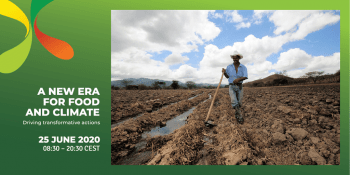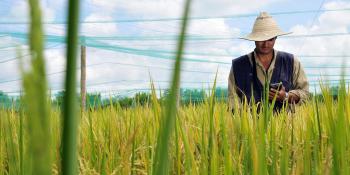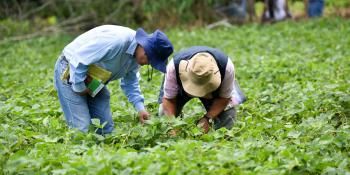Climate-smart agriculture improves farmers’ incomes and climate change adaptation capacity
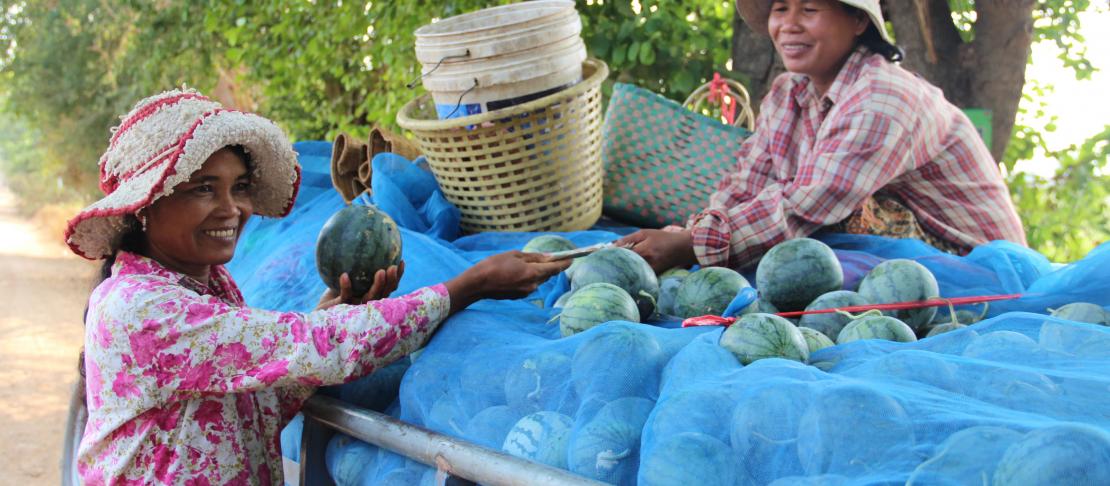
How climate-smart agriculture contributes to the adaptation measures of farmers in Cambodia.
The farming families of Ms. Ya and Mr. Khuen Khun, a 45-year-old farmer—as well as the other farming households who live in Rohal Suong Climate-Smart Village (CSV)—often experience severe floods and droughts. In this area, farmers like Khun and Ya grow rice, vegetables, and other crops using traditional methods, some of which have been used by Cambodian families for several decades already. However, these traditional methods are not adaptive to the changes in climatic conditions transpiring today, resulting in the farmers losing their rice and other crops almost every year. Aside from practicing such traditional methods, the farmers lack the necessary agricultural capacity and knowledge to adapt to climate change.
Our families have been living here for over 20 years. As a farming household, we are facing several issues, such as floods, drought, pests and diseases. However, our yield is usually so low; we even experience a total loss of crops sometimes. We did not know how to deal with this issue. We just increased our use of pesticides and fertilizers, which were introduced to us by local pesticide and fertilizer shop owners.”
Mr. Khuen Khun, farmer in Rohal Suong CSV, Cambodia
To address the issues that are plaguing the Rohal Suong CSV, climate-smart agriculture (CSA) practices were introduced to them in 2016 by WorldFish and its partners under the CGIAR Research Program on Climate Change, Agriculture and Food Security (CCAFS). The families of Mr. Khun and Ms. Ya, who belong to the community group committee in Rohal Suong CSV, were selected as pilot households to test climate stress tolerant-rice varieties and ecological engineering.
Ya and her husband started field demonstrations after they were oriented on CSA practices and on trainings such as seed cleansing and management, integrated soil fertility management, rice crop management, and integrated pest management. On their farms they had already been applying tolerant rice varieties since 2016, as well as ecological engineering since last year.
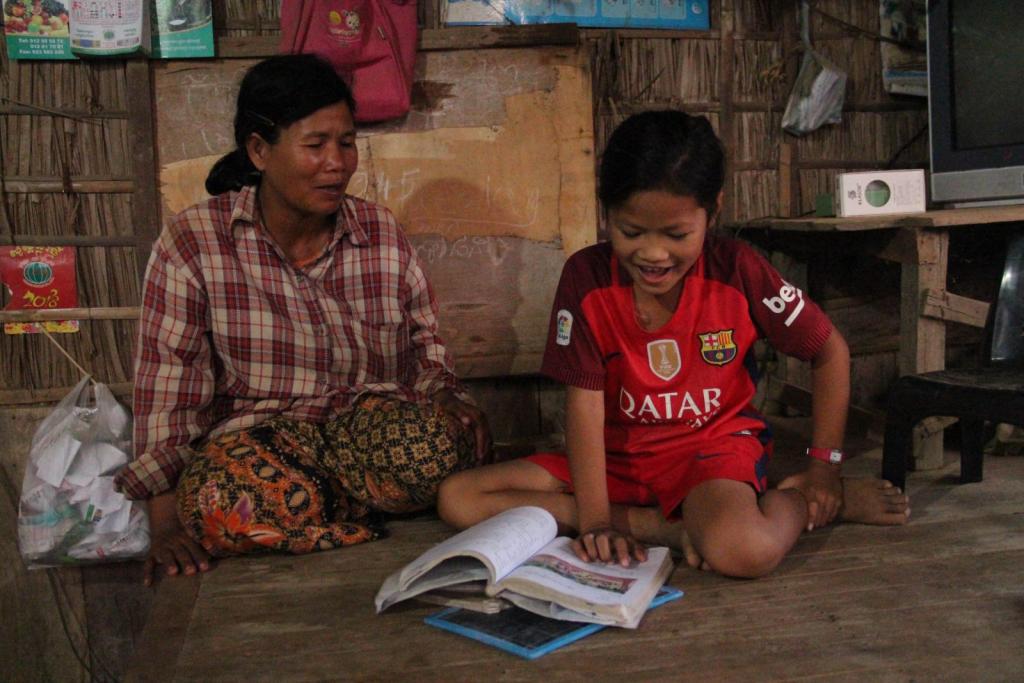 Ya is happy that the profits from her CSA farm can support her children’s education. Photo: Dyna Eam (WorldFish)
Ya is happy that the profits from her CSA farm can support her children’s education. Photo: Dyna Eam (WorldFish)
Knowledge exchange
During the CSA piloting, a field day was organized for Ya's family and other farmers to exchange lessons and experiences with one another about the new CSA practices in their community. Her family and other piloting households found that a new rice variety, called CAR-15, is tolerant to heat, floods, pests and diseases, and requires less water and fertilizers. The yield of the new variety is also high, more than 5 tons per hectare, compared to the traditional rice varieties that yield only 3 tons at most per hectare.
Her family and her neighbors were also keen on learning about the ecological engineering approach, an environmentally friendly method to control pests and diseases. This was introduced to Rohal Suong CSV by WorldFish and the Centre for Agriculture and Biosciences International through planting of flowers around rice bunds to attract other species, which will kill the insects that bring pests and diseases to the rice. As a result, the use of pesticides has been reduced by almost half in the ecological engineering fields, while the yield remained the same. Ya's family always shares their experiences and CSA practices with other farmers in this area and encourages them to apply these practices on their farms as well.
Our family was so glad to see the fresh flowers around our farm. We used very little amounts of pesticide on this farm. As a result, we could save about 50% of our expenses. This year (2018), we doubled the area where we adopted the flower planting approach,” said Ms. Ya, who is now a CSA farmer and advocate."
Ms. Ya, a CSA farmer and advocate in Rohal Suong CSV, Cambodia
The annual reflection workshop was organized for CSA farmers and non-CSA farmers, agriculture officers, villager leaders, project team members, and local government officers to analyze the cost and benefits of CSA practices and develop an action plan for CSA improvements. Decision makers such as commune and district government officials are aware of the successful adoption of these climate-smart techniques and are supportive in scaling them out. For instance, the stress-tolerant rice varieties and ecological engineering as demonstrated in Rohal Suong in 2017 have been replicated rapidly in other CSVs and neighboring villages this year.
Read more:
- Blog: Developing pest-smart farmers in Cambodia
- Blog: Developing climate-smart farmers using knowledge-sharing and on-site learning approaches
- News Update: Beyond the village: Upscaling climate-smart agriculture in Southeast Asia
Dyna Eam is a researcher at WorldFish Cambodia, working on the Climate-Smart Village project.

